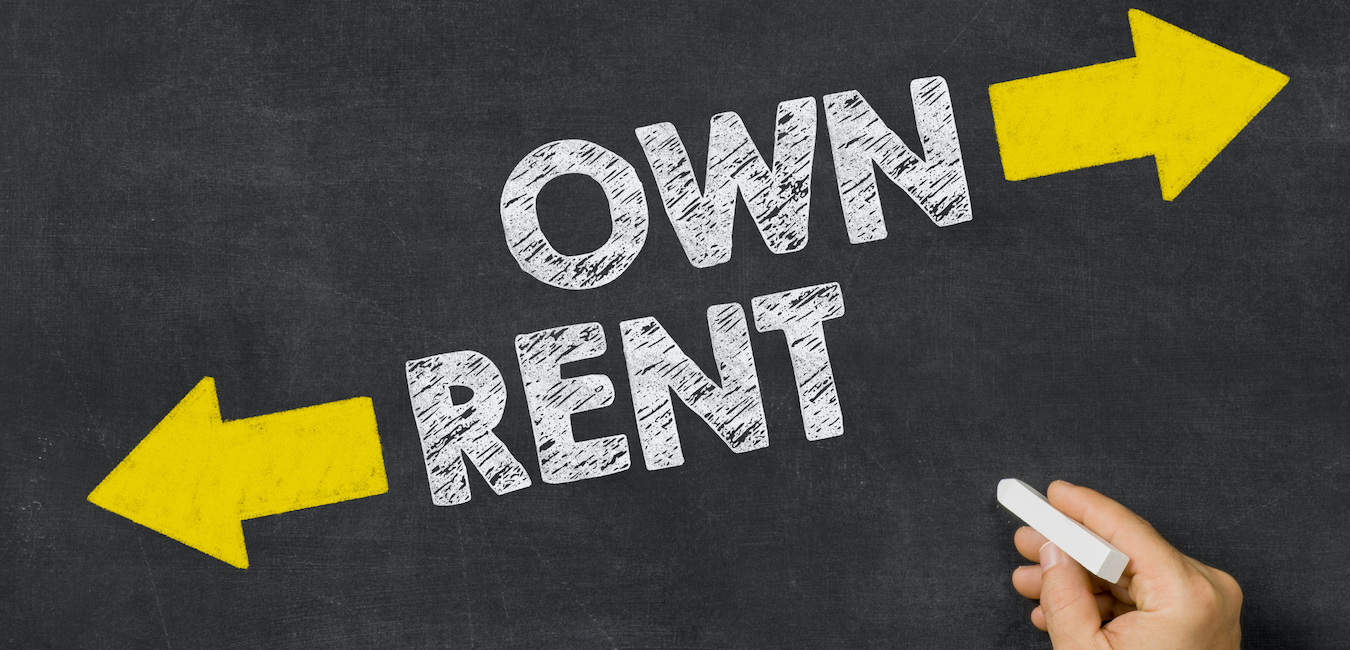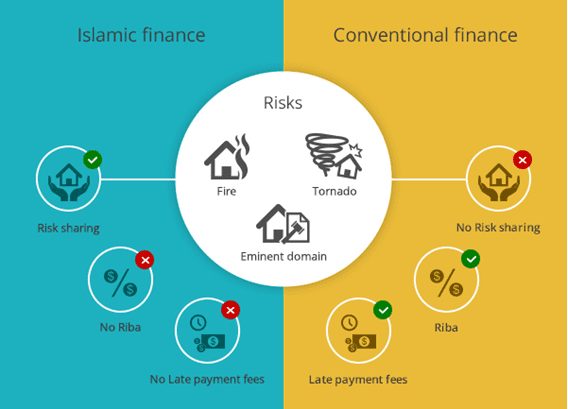Top 7 Reasons to Buy a Home Instead of Rent

If you’re deciding between home ownership vs renting a home, the best choice comes down to your personal and financial goals and what makes sense for you. Why do you want to purchase? Where do you see yourself in the next few years? Are you ready for the responsibilities that come with being a homeowner?
While you’re making the decision to rent or buy, consider the pros and cons—including the top reasons to buy.
Advantages and Disadvantages of Renting a House
Whether you choose to purchase or rent, both should feel like home. Owning isn’t necessarily better than renting because again, it comes down to your current situation and goals. Consider these pros and cons to decide whether renting is right for you at the moment.
Pros of Renting:
Less Unexpected Expenses
When you’re renting, you know the exact amount you’ll need to pay every month. You can budget accordingly for your housing expense. If the sink stops working today and the next day, the heater needs to be repaired, you won’t need to account for these expenses. If something needs repair or stops working unexpectedly, that is the responsibility of the landlord to pay.
Time Flexibility
If you’re not sure about living in a neighborhood for the long term, or if you prefer to live in an area before committing, renting is a great option. Similarly, you may need to move often for various reasons and don’t want to be tied down to one place. Renting offers the ability to have a year lease, or even month-to-month—creating even more flexibility. As an added bonus, you won’t need to worry about the maintenance of the home if you’re traveling.
May Be Cheaper
Since you won’t need to account for the maintenance and any surprise expenses that may arise from needed repairs, your monthly cost for renting over buying may be cheaper. You also do not need to pay property taxes or come up with an upfront initial investment of around 20% that you’ll need when purchasing a home. Additionally, renter’s insurance is typically cheaper than homeowner’s insurance.
Cons of Renting:
Potential Increased Rent
As a tenant, your landlord may one day decide that they want to increase the rent. This is out of your control and if you want to stay for another year, you’ll need to account for the increase when budgeting for your housing expenses. There is also the possibility that your landlord will decide to sell the property, resulting in a new landlord who may also want to increase the rent.
Can’t Customize
While you could request some small aesthetic changes to the home you choose to rent, you can’t customize the home exactly how you want it to look without permission. If you wanted to make full changes like renovating, having updated appliances, starting a garden, or even painting a wall, you’ll need approval from your landlord.
No Equity or Tax Benefits
The home you rent won’t be considered an asset since you don’t own the property. Therefore, you are unable to take advantage of tax benefits that owning a home can afford. Making your monthly rental payments to the homeowner/landlord is building their equity towards their home.
Rules
There are rules to abide by in your lease agreement with the landlord. For example, the landlord may not allow pets. If you wanted to get a pet in the future while renting, you may need to look for another home if your landlord doesn’t allow them. (Though under the Fair Housing Act, a landlord is required to make reasonable accommodation for service or assistance animals.)
Advantages and Disadvantages of Buying a House
Purchasing a home is oftentimes the biggest purchase you’ll make in your lifetime, so careful consideration is necessary. To determine if homeownership is right for you, weigh the pros and cons of buying a house.
Pros of Homeownership:
Financial Benefits
Equity is your assets minus your liabilities. When you purchase a home and make your monthly payments, you’re building your equity. The value of your home may also increase over time, so when you sell, you can make a profit. And when you make payments on time, your credit score may increase. Additionally, property taxes are tax-deductible.
Can Be an Investment
As you build equity and receive tax benefits, you also have the opportunity to become a landlord since you own the home. You can look at the purchase of your home as an investment and rent it out to others if your situation changes and you need to move.
Stability
If you rent, your landlord can increase your rent or decide to not rent the home any longer after your lease is up. As a homeowner, you own the home and won’t need to worry about lease renewals and having to find a new place to live every year. You can stay for as long as you wish—it’s up to you whether you want to move out at any time, sell the home or rent it.
Freedom
Making updates and improvements to your own home as a homeowner won’t require any permission from a landlord. If you wake up one morning and feel like you want the wall color to be different, you can do so immediately. Add that garden, get those new appliances you’ve been wanting, or even get a pet. You may need to get permission regarding exterior aspects of the home from your homeowner’s association (HOA), but for the most part, being a homeowner allows you the freedom to make changes.
Cons of Homeownership:
Responsibility
When something breaks or needs to be changed, those maintenance and upkeep costs are on you. These expenses, like having to get your roof changed, can be steep. The time it takes to do these repairs is also on you—including finding a contractor to help, or doing it yourself. Sometimes, utilities are included in rent, but when you own your own home, utilities are completely on you.
Time and Less Flexibility
If you wanted to sell and move from the neighborhood, as a homeowner, you can’t just immediately leave the house. It will take time to put on the market and find the right qualified buyer. And even if you wanted to rent, you’d have to wait to find a qualified tenant. The process for both can be complex and long.
Prices and Costs
There is always the possibility that your property value may decrease and your property tax can also increase. While your monthly payment will stay the same on a fixed-rate financing option, other costs may cause the amount you spend on housing per month to increase. This includes any unexpected maintenance costs.
Initial Investment
Buying a home will usually require around a 20% initial investment for a down payment. It will also require closing costs of around 3%–5% of the purchase price. This can take years to save. But the good news is that you can get gift money from family and friends as long as you have a letter attached to it saying that you do not need to repay them. There are also some assistance programs available. For example, Guidance Residential has partnered with Freddie Mac to promote homeownership by offering credit for qualified buyers.
Top 7 Reasons to Buy a Home Instead of Rent in 2022
Though the percentages vary, the majority of home pricing forecasts for 2022 predict an increase in home price growth. But after weighing the pros and cons of both buying and renting, here are some additional points to help you decide to buy a home instead of rent.
1. Provides Security
As a homeowner, you won’t need to worry if your landlord will increase the rent or if they don’t want to renew your lease. You also won’t need to worry about losing your home if you make payments towards the home on time. And with an Islamic mortgage, the risk is shared so you have even less to worry about. For example, if the property is lost in the case of a natural disaster, or a public service project initiated by the government forces you out of the property, the risk is shared between you and the company. Learn more about how an Islamic mortgage works.
2. You Are in Control
However you want to decorate or update your home, add a garden or remodel, you are in control as a homeowner. You do not need permission to paint a wall or get approval other than some changes to your home’s exterior if you are part of a homeowner’s association (HOA). Otherwise, you have freedom and control and can build the home of your dreams.
3. Build Equity and Long-Term Investment
When you make payments towards your home, you’re building equity and adding to your home’s value. It’s like a sort of forced savings when you make payments on the home. And when it comes time to sell, you get the payments, plus more back if the property value increased and the market is favorable. And if at some point you need cash, you can also borrow against the equity.
4. Tax Advantages
As a homeowner, you can deduct property taxes when it comes time to file for federal and some state income taxes. If you work from home, part of the home can also be accounted for and deducted from your taxes.
5. Predictable Payments
While your landlord can increase the rent any time of year, if you choose fixed-rate financing, the monthly payments will stay the same. This allows the homeowner to budget appropriately and set aside any additional costs related to maintenance, making being a homeowner more predictable in terms of payments.
6. An End to Payments
When you rent, you’ll need to make payments every month and indefinitely. When you purchase and have made all of your payments to own the home in full, you do not need to make any more payments. You also have the option to pass the house along to loved ones.
7. A Sense of Belonging
When you own a home, you’ll have a sense of ownership and belonging. You can feel part of the community. And you can call it your own. Buying a home isn’t just about the financial benefits. Home is hope, dreams, security, family, freedom, future… what does home mean to you?
Stop Renting and Start Owning
Both renting and owning have their pros and cons. Take time to weigh your options and consider the advantages and disadvantages of each. If you feel that now is the right time for homeownership, take the first step.
Get prequalified online today in fewer than 10 minutes with Guidance Residential.
Originally published in December 2021. Updated in February 2022.




